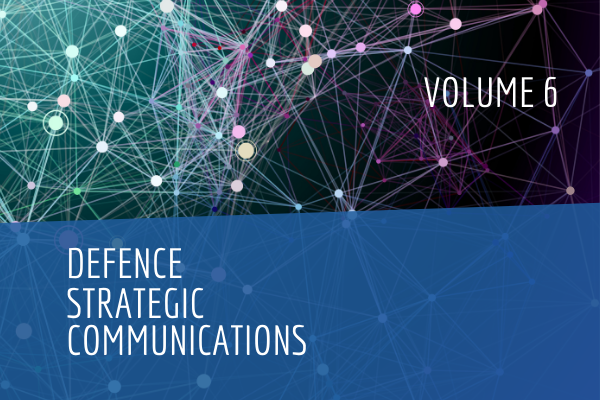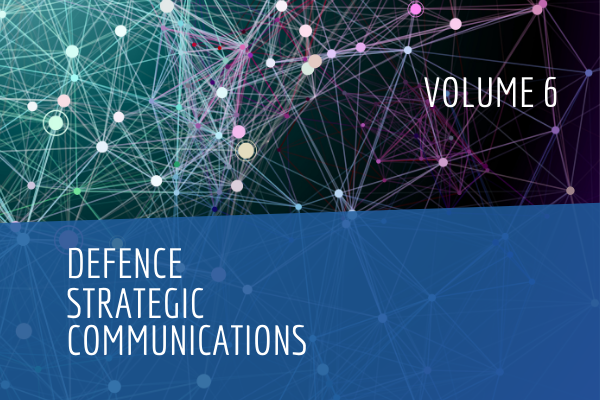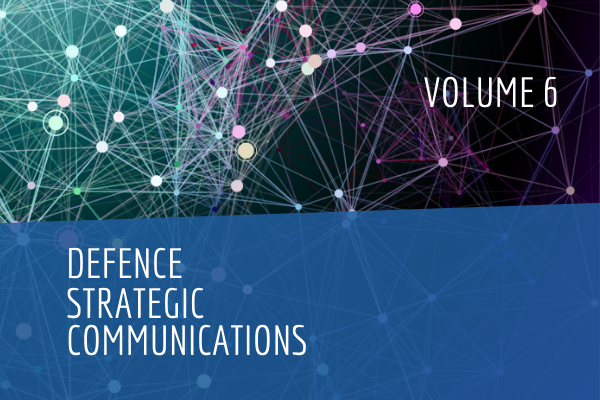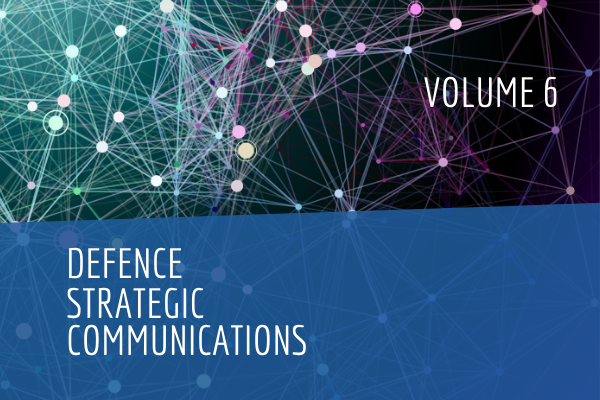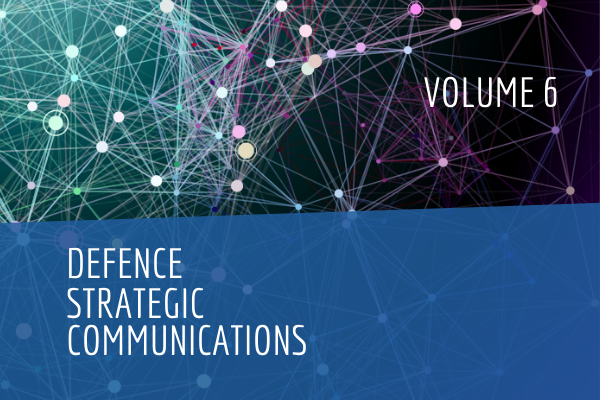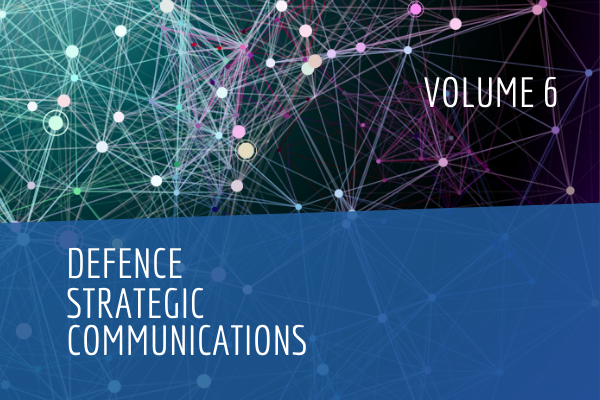Abstract
Since the Cold War, Latin America has escaped any confrontation between the great powers. However, in the last decade, this scenario appears to have changed because of the increased presence of extra-regional actors. Recent developments in Venezuela dramatically illustrate this. China and Russia have become defining actors in Venezuela’s domestic dispute, using it as a platform for their global interests. The current crisis involves not only the power resources of traditional international competition—diplomatic, economic, and military—but also new means in the informational and cyber environment. This paper analyses the balancing strategies of China and Russia in Latin America and the role of their strategic communications. It argues that China and Russia employed two divergent balancing strategies to counter US regional hegemony in the Americas, and that each state projected strategic communications particular to each type of balancing. Consequently, China employs communications to ensure resources for its economic development, and to gain influence, presenting itself as a credible and responsible non-Western great power. Russia, meanwhile, employs information campaigns as part of hybrid warfare to promote hard balancing, to pressure United States hegemony in the Americas, and to reduce NATO’s influence in Eastern Europe.
Keywords—Latin America, Venezuela, China, Russia, US, great powers, balancing, strategic communications
About the Author
Raphael Camargo Lima is a researcher at the Institute for Applied Economic Research (Ipea) in Brazil and holds an MSc in International Relations at the Graduate Program San Tiago Dantas (Unesp, Unicamp and PUC-SP). His research focuses on Latin American security and defence issues, regional governance, defence reform and military change.
Bibliography
Balmforth, Tom and Maxim Rodionov, ‘Russia Says It Sent “Specialists” to Venezuela, Rebuffs Trump’, Reuters, 28 March 2019.
BBC News, ‘Russian Navy Sails to Venezuela’, 22 September 2008.
_____, ‘Spat over Russian Bombers in Venezuela’, 11 December 2018, sec. Latin America & Caribbean.
Bolt, Neville, ‘Foreword’, Defence Strategic Communications 5 (2018): 3–11.
Brands, Hal, ‘Fools Rush Out? The Flawed Logic of Offshore Balancing’, The Washington Quarterly 38, № 2 (April 3, 2015): 7–28.
Casey, Nicholas, Albinson Linares, and Anatoly Kurmanaev, ‘Some Aid From Brazil Pierces Venezuela’s Blockade, but Deadly Violence Erupts’, New York Times, 23 February 2019.
CGTN, ‘China Provides 65 Tons of Medical Supplies for Venezuela’, 30 March 2019.
China, ‘China’s Military Strategy 2015’, Chinese Government, 2015.
_____, ‘China’s National Defense in 2008’, Chinese Government, 2008.
_____, ‘China’s Policy Paper on Latin America and the Caribbean’, Chinese Government, 2008.
_____, ‘China’s Policy Paper on Latin America and the Caribbean’, Chinese Government, 2016.
_____, ‘Foreign Ministry Spokesperson Geng Shuang’s Regular Press Conference on January 29, 2019’, 29 January 2019.
_____, ‘Foreign Ministry Spokesperson Hua Chunying’s Remarks on the Inaugural Conference of the International Contact Group on Venezuela’, 2 August 2019.
_____, ‘Foreign Ministry Spokesperson Lu Kang’s Remarks on the Situation in Venezuela’, 25 February 2019.
Chivvis, Christopher S., ‘Understanding Russian’, Product Page, 2017.
Corrales, Javier, Carlos A. Romero, and Carlos A. Romero, U.S.-Venezuela Relations since the 1990s: Coping with Midlevel Security Threats, Routledge, 2012.
Corrales, Javier and Carlos A. Romero, ‘U.S.-Venezuelan Relations after Hugo Chávez’, in Jorge I. Domínguez, Rafael Fernández de Castro (eds), Contemporary U.S.-Latin American Relations: Cooperation Or Conflict in the 21st Century? (Routledge, 2016), p. 213–35.
Cusack, Asa K., Venezuela, ALBA, and the Limits of Postneoliberal Regionalism in Latin America and the Caribbean, (Springer, 2018).
Darczewska, Jolanta, The Anatomy of Russian Information Warfare. The Crimean Operation, a Case Study, Ośrodek Studiów Wschodnich im. Marka Karpia, 2014.
Deutsche Welle, ‘Donald Trump Says Military Option for Venezuela’s Nicolas Maduro on the Table’, DW, 12 August 2017.
Ellis, R. Evan, ‘The New Russian Engagement with Latin America: Strategic Position, Commerce, and Dreams of the Past’, 2015, 137.
Ellis, R. Evan, ‘China’s Growing Relationship with Latin America and the Caribbean’, Air & Space Power Journal (2015): 3–17.
Farrell, Theo, Terriff Terry, and Osinga Frans. A Transformation Gap?: American Innovations and European Military Change (Stanford University Press, 2010).
Farwell, James P., Persuasion and Power: The Art of Strategic Communication (Georgetown University Press, 2012).
George, Alexander L., Andrew Bennett, Sean M. Lynn-Jones, and Steven E. Miller, Case Studies and Theory Development in the Social Sciences (MIT Press, 2005).
Gray, Colin, ‘Clausewitz Rules, OK? The Future Is the past: With GPS’. Review of International Studies Vol. 25 (1999): 161–82.
Gray, Colin S., War, Peace and International Relations: An Introduction to Strategic History (Routledge, 2013).
Hart, B. H. Liddell, Strategy, Editorial Benei Noaj, 2009.
Heath, Timothy R., Kristen Gunness, and Cortez A. III Cooper ,‘The PLA and China’s Rejuvenation’, Product Page, 2016.
Holtzhausen, Derina, and Ansgar Zerfass, The Routledge Handbook of Strategic Communication (Routledge, 2014).
Joint Chiefs of Staff, ‘DoD Dictionary for Military and Associated Terms’, US Department of Defense (DoD), April 2019.
‘Joint Statement on the Second Meeting of the Lima Group on the Situation in Venezuela–New York, 20 September 2017’, [Accessed 7 April 2019].
Kaplan, Stephen B., and Michael Penfold, ‘China-Venezuela Economic Relations: Hedging Venezuelan Bets with Chinese Characteristics’, Wilson Center. Latin American Program. Kissinger Institute on China and the United States, February 2019.
Kennedy, Paul, The Rise and Fall of the Great Powers (Knopf Doubleday Publishing Group, 2010).
Koleski, Katherine, and Alec Blivas, ‘China’s Engagement with Latin America and the Caribbean’, U.S.-China Economic and Security Commission, 17 October 2018, p. 65.
Kramer, Mark, ‘The Myth of a No-NATO-Enlargement Pledge to Russia’, The Washington Quarterly 32, № 2 (April 2009): 39–61.
Layne, Christopher, ‘Offshore Balancing Revisited’, The Washington Quarterly 25, № 2 (1 June, 2002): 233–48.
Levy, Jack S., ‘Case Studies: Types, Designs, and Logics of Inference’, Conflict Management and Peace Science 25, № 1 (1 February 2008): 1–18.
_____, ‘What Do Great Powers Balance Against and When?’ in Balance of Power: Theory and Practice in the 21st Century (Stanford University Press, 2004), p. 29–51.
Mearsheimer, John J., The Tragedy of Great Power Politics (Updated Edition) (W. W. Norton & Company, 2003).
Mearsheimer, John J., and Stephen M. Walt, ‘The Case for Offshore Balancing’, Foreign Affairs, 13 June 2016.
Melimopoulos, Elizabeth. ‘Venezuela: A Simple Guide to Understanding the Current Crisis’. Al Jazeera, 2 February 2019.
Munoz, Arturo, U.S. Military Information Operations in Afghanistan: Effectiveness of Psychological Operations 2001–2010 (RAND Corporation, 2012).
Murray, Williamson, and Peter R. Mansoor, Hybrid Warfare: Fighting Complex Opponents from the Ancient World to the Present (Cambridge University Press, 2012).
